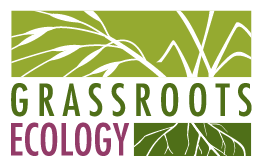Flight of the Bumble Bee, Plight of the Native Bee
Bees invoke a broad spectrum of feelings: horror, fear, awe, adoration, or perhaps a combination of these. Yet, what if I told you most of these feelings are elicited by one species of bee out of roughly 400 different bee species in the Bay Area and about 1,600 in the state of California?
Reflections of a New Mom on Earth Day
I remember a sky that turned purple at night instead of black; leaf shadows dappling the concrete from street trees as I walked to school in the morning alongside lanes bustling with cars. Growing up in the city, nature was all around me—and yet it was obscured. It was nothing short of an imaginative act to envision the soil beneath the pavement I walked each day, water beneath the soil.
Rain!
Somehow it feels predictable that after years of drought, we are now facing flooding, mudslides, and damage to dams and levees from the heavy rains this season. California doesn’t have many “average” winters.
Locally, we have been asked pretty frequently how our project sites are doing with all of this rain. The answer varies a bit from site to site.
Our Palo Alto Creek Monitoring Program Celebrates its Third Birthday
“And now, the moment of truth… Will we see water at Terman today?!” How frequently this question has crossed my mind in the past three years as we prepared to visit Adobe Creek at Terman Middle School in Palo Alto, one of our most notoriously dry locations for water quality monitoring. Ever since we began our Palo Alto water quality monitoring program in December of 2013--right in the middle of the drought-ridden, sun-soaked winter--we have played this guessing game.
Night Hike at Byrne Preserve
Last month, Grassroots Ecology staff and community members explored Byrne Preserve at night, viewing the oak woodland for the first time in the ultraviolet spectrum. We carried small ultraviolet flashlights that allowed us to examine the world that we cannot see with the naked eye.
Native Gardening Tips for Fall
Late summer in the native plant garden teaches us to appreciate subtlety and quietude. While some may look at these natural landscapes as dead or brown, we see an important function and structure to provide habitat to insects, lizards, and birds feeding on the senescing flowers and seedheads.
Going to the Roots: Our New Name and Logo
Earlier this month, we announced that the Acterra Stewardship program is now an independent, fiscally sponsored project of Acterra: Action for a Healthy Planet. As part of this transition, we want to start broadening our connection to the local community through social media (Instagram and Facebook), as well as this blog. The Eco Roots blog will give a behind-the-scenes look at our work and what inspires us to improve the habitat of California’s native ecosystems.








